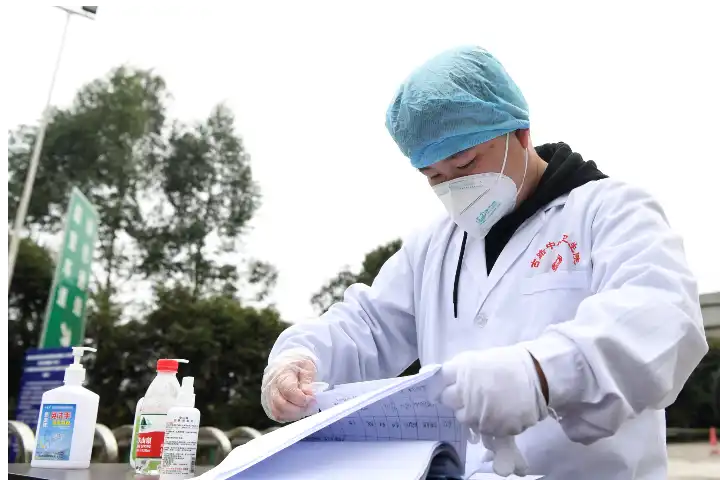

Chinese city of Chengdu along with several others have once again been locked down (Photo credit--IANS)
It is clear that Chinese President Xi Jinping will not ease his much criticised zero Covid policy despite a steady slowdown of economic activities and increase in unemployment. Consider this. Chengdu, the capital of the southwestern Sichuan province — home to more than 21 million people and a favourite tourist destination, reported just 156 new Covid cases on Wednesday. But from Thursday, the city was put under a lockdown.
The citizens have been asked to undergo a Covid test.
At several places in the city, authorities have started calling people on the loudspeakers early in the morning at 5 am asking them to go for tests.
People wishing to use any public space including public transport would be required to present a green “health code” on the Chinese government tracker app, indicating a negative PCR test from within the past 48 hours, a Radio Free Asia report said.
While grocery stores and food delivery outlets besides the other essential service providers are allowed to operate, there is fear that the city may face food shortage due to the dent in supply chain.
As fresh Covid cases emerged in the country, Beijing once again reverted to imposing stringent lockdowns in other key cities as well which include Shenzhen, Guangzhou, Dalian– the port city, among others affecting millions of citizens.
“China is one of the last places in the world still enforcing stringent zero-Covid measures, which rely on sweeping digital surveillance, mass testing, extensive quarantines and snap lockdowns,” CNN pointed out.
Earlier, in April-May, Shanghai and Beijing too among other cities were shut down.
Last week, China announced the injection of a massive stimulus package of an additional 1 trillion yuan — $146 billion– to bolster sagging growth. The local governments, which are key to Beijing’s growth plan, will be allocated 500 billion yuan comprising special bonds from unused quota. However, the sudden shutdowns will affect economic activities even if the government is willing to offer financial support, an analyst said, adding there is more pain for China in the coming months.
The country’s urban youth unemployment rate is rising. China’s manufacturing output measured in terms of purchasing managers’ index (PMI) rose from 49 in July to 49.4 in August but the reading is still below 50. Any reading above 50 is considered as growth while a sub 50 score indicates contraction.
Also read: Is China halting border trade to punish Nepal for its BRI stand?
US President Donald Trump on Saturday (US local time) called the continuation of the trial…
Protestors in Serbia took to the streets of Belgrade and demanded an early election, as…
The Ministry of External Affairs (MEA) on Sunday strongly rejected the Pakistani Army's claims, where…
Indian Army strengthens ties with Russian Land Forces at the 4th Indo-Russian Inter-Governmental Commission (IRIGC)…
The Indo-French Joint Military Exercise SHAKTI-VIII continues to strengthen operational interoperability and mutual cooperation between…
Prime Minister Narendra Modi attended the centenary celebrations of the revered Jain spiritual leader Acharya…